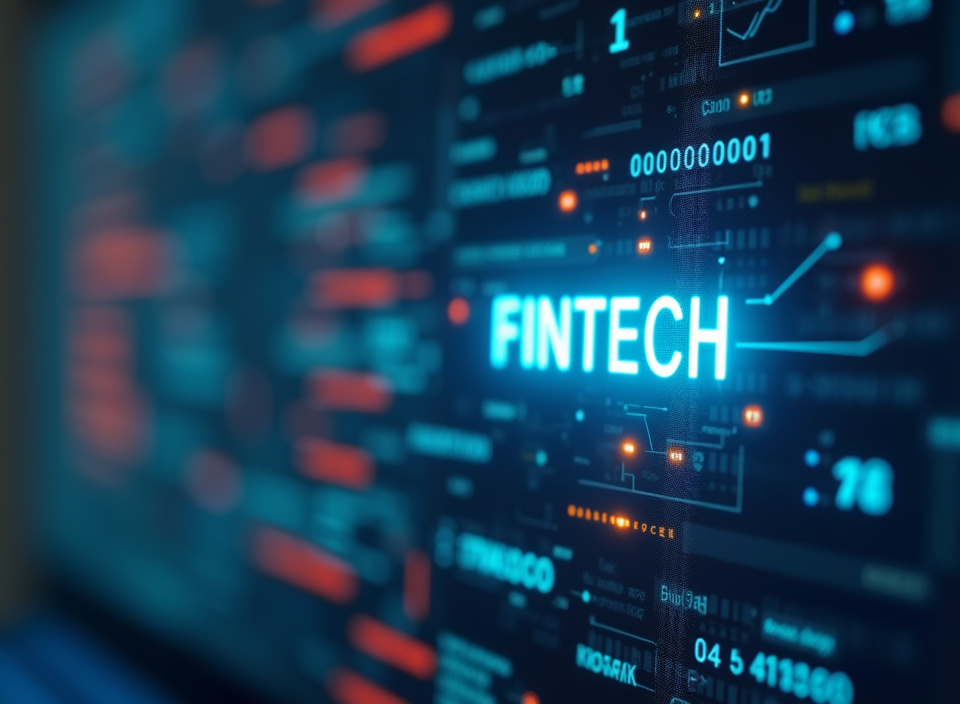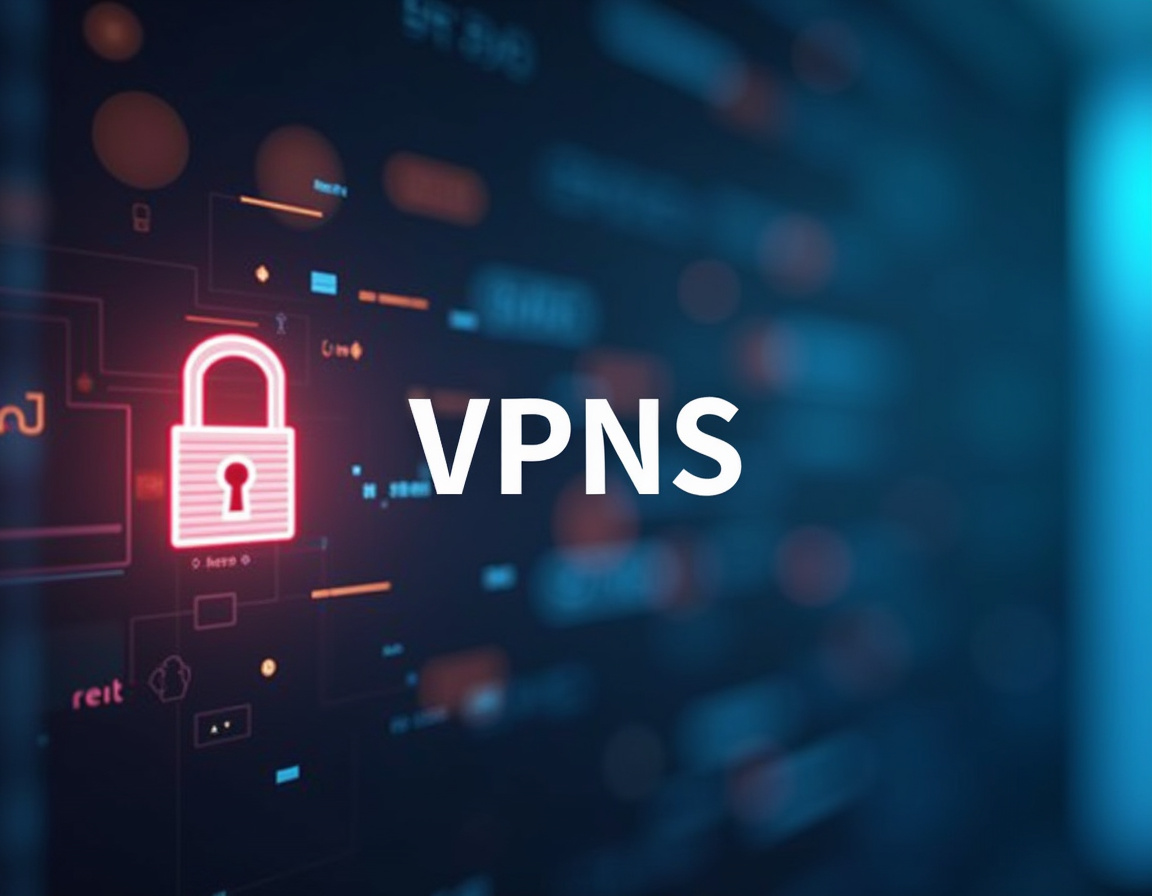VPNs for Fintech Solutions: Securing User Transactions

Table of Contents
Introduction: Securing Language Podcasts in the Digital Age
In an era defined by rapid technological advancement and the pervasive digitalization of financial services, the Fintech sector stands at the forefront of innovation. Fintech companies are disrupting traditional banking models, offering seamless and accessible solutions ranging from mobile payments and peer-to-peer lending to robo-advisors and cryptocurrency platforms. This digital transformation, while offering unprecedented convenience and efficiency, introduces significant challenges, particularly in maintaining robust security and safeguarding sensitive user data.
The inherent nature of Fintech, dealing directly with financial assets and personal information, makes it a prime target for cybercriminals seeking to exploit vulnerabilities for financial gain. Data breaches, fraud, and unauthorized access can have devastating consequences, eroding customer trust, damaging reputations, and potentially leading to significant financial losses and legal repercussions. Therefore, establishing a strong security posture is not merely an option for Fintech companies; it is a fundamental requirement for survival and sustainable growth in this competitive landscape.
Protecting user transactions and ensuring the confidentiality, integrity, and availability of data are paramount to fostering trust, complying with stringent regulatory requirements, and ultimately supporting the continued innovation and expansion of Fintech solutions. This article delves into the critical role that Virtual Private Networks (VPNs) play in bolstering security measures for Fintech companies, exploring how they contribute to a comprehensive security strategy designed to mitigate risks and protect valuable assets. The modern cyber threat landscape demands more sophisticated safeguards.
No longer are simple passwords and standard firewalls sufficient. Criminals employ an array of sophisticated techniques, from phishing and malware to distributed denial-of-service (DDoS) attacks and advanced persistent threats (APTs), continually probing for weaknesses in even the most well-defended systems. The increasing complexity of Fintech ecosystems, often involving interconnected systems, cloud infrastructure, and third-party integrations, further exacerbates the challenge.
A single vulnerability in one component can potentially compromise the entire system. Addressing these challenges requires a proactive and multi-layered approach to security, encompassing a wide range of technologies and best practices. Strong encryption, multi-factor authentication, intrusion detection systems, and regular security audits are all essential elements of a comprehensive security strategy.
However, one increasingly vital component is the implementation of a Virtual Private Network (VPN). A VPN enhances security by creating a secure, encrypted tunnel between a user's device and the Fintech server infrastructure. This encrypted connection shields sensitive data from unauthorized access, particularly when transmitted over public Wi-Fi networks, which are notoriously vulnerable to eavesdropping and interception.
A VPN masks the user's IP address, making it more difficult for malicious actors to track their online activity and location, thereby enhancing privacy and anonymity. Beyond simple masking, VPNs integrated into Fintech infrastructure offer granular control over network access. Segmentation can limit access to sensitive databases, preventing lateral movement by attackers who may have breached one part of the system.
This is crucial for complying with regulatory requirements that mandate access control and data segregation.
To fully understand the significance of a 'fintech VPN', it's essential to explore the underlying security concepts and how they apply specifically to the financial technology domain. At its core, 'transaction security' in Fintech revolves around ensuring the confidentiality, integrity, and authenticity of financial transactions. This means preventing unauthorized access to transaction data, protecting it from tampering, and verifying the identity of the parties involved.
A VPN contributes directly to these goals by encrypting all data transmitted between the user's device and the Fintech server. This encryption process transforms the data into an unreadable format, rendering it useless to anyone who might intercept it along the way. Strong encryption algorithms, such as Advanced Encryption Standard (AES) with key lengths of 256 bits, are commonly employed to provide a high level of security.
This makes it exceedingly difficult for attackers to decrypt the data, even with sophisticated computing resources. 'User data protection' is another paramount concern for Fintech companies. Financial data, including bank account numbers, credit card details, and personal identifying information, is highly sensitive and valuable.
Data breaches can lead to identity theft, financial fraud, and significant reputational damage for the affected Fintech company. A VPN helps protect user data by masking the user's IP address and location. This prevents websites, advertisers, and other third parties from tracking the user's online activity and collecting data about their browsing habits.
This is particularly important in regions with strict data privacy regulations, such as the European Union's General Data Protection Regulation (GDPR), which imposes stringent requirements for the collection, storage, and processing of personal data. The concept of 'privacy' extends beyond simply concealing IP addresses. It also involves protecting user anonymity and preventing the aggregation of data that could be used to identify or profile individuals.
A VPN can help achieve this by routing internet traffic through multiple servers in different locations, making it more difficult to trace the origin of the traffic back to the user. Furthermore, some VPN providers offer additional privacy features, such as DNS leak protection and kill switches, to further enhance user anonymity. Secure communication channels using VPNs extend to mobile devices.
With the proliferation of mobile banking apps, securing the communication between the mobile device and the Fintech's server becomes crucial. Given the public network sometimes available, VPNs ensure transaction details like account numbers and payment details remain private from potential eavesdroppers. The use of a 'VPN for finance' aims to provide a secure digital environment, allowing customers and financial institutions to engage with the platform in a secured manner.
This promotes trust and encourages wider acceptance, thereby facilitating the growth of Fintech companies. As Fintech firms provide innovative solutions, VPNs serve as a vital shield protecting users and their investments from digital threats.
The effective implementation of a 'fintech VPN' involves more than simply subscribing to a VPN service. It requires a strategic approach that considers the specific security needs of the Fintech company and the potential risks it faces. One crucial aspect is choosing a VPN solution that offers robust encryption protocols and strong authentication methods.
As mentioned earlier, AES with 256-bit keys is a widely recognized and trusted encryption standard. However, other protocols, such as OpenVPN and WireGuard, are also considered secure and offer additional features and benefits. Multi-factor authentication (MFA), when integrated with a VPN, provides an added layer of security by requiring users to provide multiple forms of identification before gaining access to sensitive data or systems.
This greatly reduces the risk of unauthorized access, even if an attacker manages to obtain a user's password. Granular access control is another essential element of a well-configured Fintech VPN. By implementing role-based access control (RBAC) policies, Fintech companies can restrict access to certain resources based on user roles and permissions.
This ensures that only authorized personnel have access to sensitive financial data and systems, minimizing the risk of insider threats and data leakage. For example, employees in the customer service department may only need access to customer account information, while employees in the finance department may require access to financial records and transaction data. VPNs also play a critical role in securing remote access for Fintech employees and contractors.
In today's increasingly remote workforce, many Fintech companies rely on remote workers to perform various tasks, such as software development, customer support, and data analysis. A VPN provides a secure tunnel for remote access, ensuring that data is protected even when employees are working from home or on the road. This is particularly important when employees are using public Wi-Fi networks, which are often unsecured and vulnerable to eavesdropping.
Scalability and integration are also important considerations when selecting a Fintech VPN solution. The VPN should be able to scale to accommodate the growing needs of the Fintech company, both in terms of the number of users and the volume of traffic. It should also be easy to integrate with existing Fintech infrastructure, such as firewalls, intrusion detection systems, and cloud platforms.
Cloud-based VPN services offer a flexible and cost-effective solution for Fintech companies that want to avoid the complexities of managing their own VPN infrastructure. These services typically provide a wide range of features and options, allowing Fintech companies to customize the VPN to meet their specific security requirements. To ensure the ongoing effectiveness of the Fintech VPN, regular security audits and penetration testing are essential.
These assessments can identify vulnerabilities and weaknesses in the VPN configuration and provide recommendations for improvement. Penetration testing involves simulating real-world attacks to identify potential weaknesses and vulnerabilities in the system. Following a successful penetration test, vulnerabilities and risks must be prioritized based on impact and likelihood.
Risk mitigation plans, including security updates and configuration changes, must be developed and implemented as an essential part of a larger risk management structure.
VPNs for Services: Enhancing Security and Privacy on Online Platforms
The strategic implementation of a 'fintech VPN' solution has far-reaching implications for regulatory compliance and, crucially, the cultivation of unwavering customer trust. Fintech companies operate within a complex web of regulations concerning data privacy and security. These include, but are not limited to, GDPR, PCI DSS, and a variety of state-level data breach notification statutes.
A robust VPN implementation actively assists Fintech companies in adhering to these stringent regulations by establishing a secure, encrypted conduit for the transmission of sensitive data, effectively minimizing the risk of data breaches and unauthorized access. Demonstrating a tangible commitment to safeguarding data privacy and ensuring ironclad transaction security is pivotal in fostering customer trust and nurturing enduring loyalty. In an era where data breaches are frequently headline news, customers are increasingly discerning about the security measures implemented by the companies with whom they entrust their financial data.
By proactively communicating the utilization of VPNs and other sophisticated security protocols, Fintech companies can inspire confidence in their customer base, reassuring them that their personal and financial information is being handled with the utmost care and diligence. Transparency forms the bedrock of customer confidence in the digital age. Fintech companies should prioritize providing clear, concise, and easily understandable explanations of their security practices, explicitly detailing the deployment of VPNs within their privacy policies and security documentation.
Customers should be comprehensively informed about the mechanisms in place to protect their data and empowered with guidance on how to further fortify their own security posture, such as adopting strong, unique passwords and activating multi-factor authentication wherever possible. Furthermore, and of equal importance, is the comprehensive training of employees on security best practices. Human error remains a significant contributor to data breaches and security incidents.
Robust security awareness programs are imperative to equip employees with the knowledge and skills necessary to identify and thwart phishing scams, handle sensitive data responsibly, and promptly report any suspected security anomalies. Regular security awareness training can cultivate a security-conscious culture throughout the Fintech organization, transforming employees into active participants in the overall security strategy. Employees should be trained on incident response procedures to quickly and effectively address incidents.
The integration of a VPN should seamlessly occur within the framework of a broader, multi-faceted security strategy, encompassing firewalls, intrusion detection systems, regular code reviews and vulnerability scans, and robust access controls. A layered security approach creates multiple lines of defense against cyber threats, significantly increasing resilience and minimizing the potential impact of successful attacks.
The Future of VPNs: Innovation and Integration in Subscription Services
In summation, VPNs constitute an indispensable asset for Fintech companies striving to fortify 'transaction security', guarantee unwavering 'user data protection', and uphold the fundamental principle of 'privacy' within the ever-evolving and increasingly complex digital realm. A strategically implemented 'VPN for finance' provides a resilient and economical means to encrypt sensitive data, mask IP addresses, and secure remote access for employees and contractors. By diligently incorporating a VPN into their holistic security framework, Fintech organizations can unequivocally demonstrate their commitment to protecting valuable financial data, fostering customer trust, and securing a competitive edge in the marketplace.
As the Fintech sector relentlessly innovates and expands its service offerings, the significance of VPNs in mitigating cyber risks and ensuring data privacy will only continue to escalate. It becomes imperative for Fintech companies to proactively assess their security requirements, carefully select the appropriate VPN solutions, and diligently implement and maintain these solutions to safeguard their assets and protect their customers. This proactive approach not only mitigates immediate threats but also cultivates long-term resilience and trust, positioning Fintech companies for sustained success in the dynamic digital landscape.
Prioritizing security as an investment rather than an expense is crucial for Fintech firms. A strong security posture allows businesses to innovate boldly with new products without fear of crippling cyberattacks, while building customer confidence and trust that encourages wider adoption of Fintech solutions. As reliance on digital financial systems intensifies, focus on refining security measures is critical for sustained growth and consumer peace of mind.
Ongoing investment in infrastructure demonstrates a forward-thinking, responsible approach to digital finance. Staying informed regarding evolving threats and ensuring the correct security implementations requires vigilance. Regular security assessments can determine weaknesses so companies are prepared to handle new threats proactively, enhancing their stance.
Fintech firms must continuously prioritize the protection of their data resources.
Stay Updated
Get the latest VPN news, tips, and exclusive deals to your inbox.




